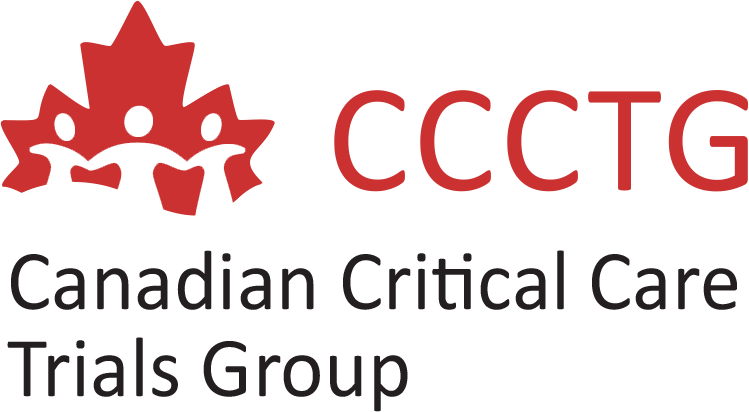CHOOSING A FIRST RESEARCH STUDY
![]()
Contents
How do I determine which study to do first?
Speak with other community ICU researchers to find out which studies they recommend. They can tell you which studies are simple and well-reimbursed and what resources you will need for each study. If you don’t know any community ICU researchers, reach out to CCIRNet (ccirnet@gmail.com or through this contact form) and we will put you in touch.
Speak with local academic ICU investigators to find out what studies they recommend. Keep in mind that the research infrastructure in an academic ICU may be quite different from your ICU so be mindful of the resources and staff you have available.
Canadian Critical Care Trials Group (CCCTG) meetings take place 3 times per year in January, June, and November. Information on membership can be found here. There may be a virtual attendance option if you are unable to attend in-person. Academic investigators present their studies at CCCTG meetings to receive feedback from other investigators and to recruit new sites. Some investigators are very keen to get community ICUs enrolling and will help you out if they know you are interested in starting a research program.
An observational study is a great starting point because of their relative simplicity, limited infrastructure requirements and easier recruitment in most instances (often waived consent). Check the CCCTG and Canadian Clinical Research Network (CCRN) websites for ongoing studies.
If you want to try a randomized controlled trial, try to find a simple, safe interventional trial with a pragmatic protocol. Investigator-led studies are usually simpler than industry-funded studies as the protocols are usually more pragmatic and there are fewer regulatory requirements.
Have someone experienced (e.g., an RC in an established community ICU research program) review the study budget for you to make sure it will cover your costs. Remember, there is always room to negotiate. For example, you may be able to negotiate not doing certain procedures (e.g., biological sample collection) if they are too complicated or are not adequately compensated. An initial budget review should ensure the following:
- Start-up fee will cover the costs of REB approval, contract review, site initiation visit, prep work and pharmacy or laboratory start-up (if required).
- Per-patient fee will cover RC/RA wages for screening, recruitment, and data collection plus a buffer. It should also cover eventual data queries and study closure.
- For pharmaceutical trials: Industry-funded trials may stop recruitment unexpectedly so be certain there is a generous start-up fee in the event the trial stops before you’ve had significant enrolment.
How do I assess the feasibility of my first study for my site?
Think about how many patients you see on a monthly basis with the diagnosis of interest. How many of these can you reasonably recruit? Recruitment usually occurs Monday to Friday during daytime hours so you will miss numerous patients on weekends and holidays. You will also miss patients if the study has tight recruitment windows (e.g., recruitment within 24 hours of ICU admission). Studies with deferred consent or waived consent usually have much higher recruitment rates than studies with a priori consent.
Discuss the study with your clinical team to determine whether there is interest and equipoise with respect to the study topic and intervention.
Does the study medication need to be given once or many times? Is the medication easy to store and administer? If you are doing a ventilation study, is the RT team willing to learn the protocol? If you are doing a rehabilitation study, is the allied health team willing to learn the protocol? Do you need assistance from the hospital laboratory or diagnostic imaging? Does nursing need to perform any of the study procedures?
Ideally, all study procedures should be done by research staff to ensure compliance and to ensure that bedside staff don’t get annoyed. Sometimes (e.g., if a medication is administered twice daily) this is not possible. In these cases, ensure procedures are straightforward and clinical staff are well-trained.
Determine whether you need pharmacy or laboratory support or support from other hospital departments (e.g., diagnostic imaging or health records). For studies involving pharmacy, you will need research-trained pharmacists and pharmacy techs so you will need to get the pharmacy administration on board with your plan and ensure that trained personnel will be available to randomize patients and dispense the study medications. Pharmacy availability (typically Monday to Friday during business hours) will also determine your recruitment hours.
Some studies have tight enrolment time windows (e.g., 24 hours) that require daily screening or immediate physician referral to meet them. Is this realistic at your site? Occasionally, studies will have flexibility in enrolment windows, but this is not often the case. Will you be able to meet the study windows with your research staffing?
Deferred consent can make enrolment much easier as patients are enrolled immediately after screening and then approached for consent to continue in the study. This gives the family more time to consider whether to participate in the study. These are usually low-risk studies.

